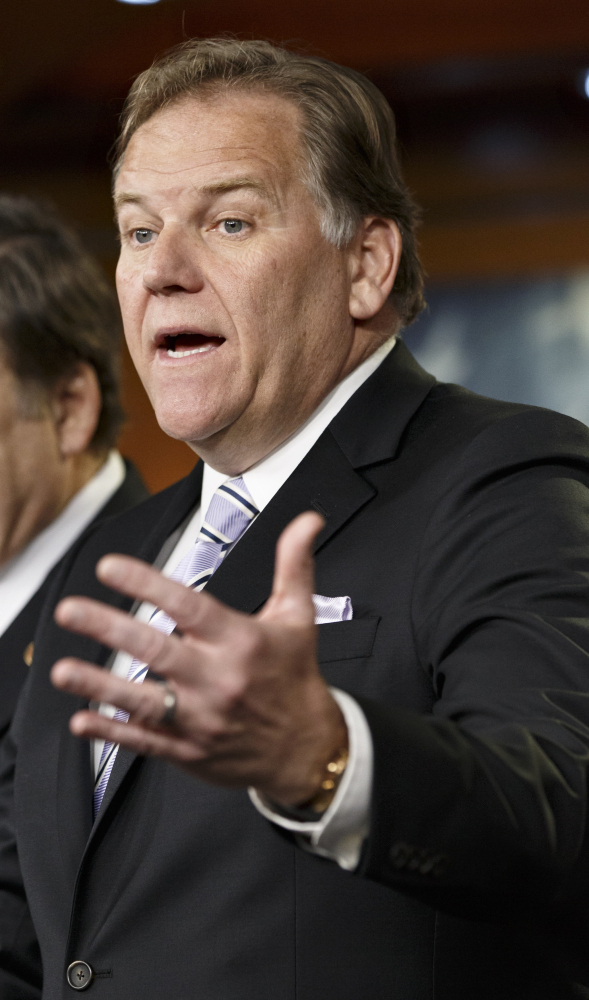WASHINGTON — To assuage privacy concerns, the White House and some lawmakers are pushing forward with changes to a surveillance program that would leave the bulk storage of millions of Americans’ telephone records in the hands of phone companies, even though they are convinced the information now held by the government is protected and question whether the changes would actually do more to protect privacy.
President Obama intends to ask Congress to end the bulk collection of Americans’ phone records. Instead, the government would ask phone companies to search their records for possible links to terrorism.
Obama said that any alternatives to the government holding onto the phone records posed difficult problems and raised privacy issues. And Republican Rep. Mike Rogers, R-Mich., chairman of the House Intelligence Committee, said he believes the data is safer with the National Security Agency, even though he recommended it be moved from the agency’s custody.
“We’re changing the program based on a perception, not a reality,” Rogers said shortly before he introduced legislation that would end the program in its current form. Americans, Rogers said, don’t want the government holding onto their data.
“They just didn’t have a comfort level with the NSA holding, in bulk, metadata, even though we had huge levels of protection,” Rogers said. “I do believe that privacy was better protected than you’re going to see in the phone companies.”
The metadata is the number called, the number from which the call is made, and the duration and time of the call, but not the content of the call or the callers’ names. The White House proposal, which has not been described in great detail yet, and the House Intelligence Committee’s proposal both shift the custody of the phone records to the phone companies, which already hold onto the records for 18 months as federal regulations require.
In January, Obama tasked his administration with coming up with new options to the telephone records program by March 28. Obama said officials offered an option that he thinks is workable and addresses concerns raised by the public.
“I want to emphasize once again that some of the dangers that people hypothesize when it came to bulk data, there were clear safeguards against,” Obama said Tuesday at a news conference in the Netherlands at the end of a nuclear security summit. “But I recognize that people were concerned about what might happen in the future with that bulk data. This proposal that’s been presented to me would eliminate that concern.”
The president’s proposal would require congressional action, something that so far has seemed unlikely. The government plans to continue its bulk collection program for at least three months. The March 28 deadline reflects the date that the current court authorization for the bulk collection expires. The administration has asked a court to renew it for at least three months, not unlike what it’s requested in the past.
“The president’s reported plan to end the bulk collection of phone records is a crucial first step towards reining in the NSA’s overreaching surveillance,” said Michelle Richardson, a legislative counsel for the American Civil Liberties Union. “The change would replace the dragnet surveillance of millions of innocent people with targeted methods that are both effective and respect Americans’ constitutional rights.” Richardson also said the government should end other bulk collection programs, as well.
Send questions/comments to the editors.



Success. Please wait for the page to reload. If the page does not reload within 5 seconds, please refresh the page.
Enter your email and password to access comments.
Hi, to comment on stories you must . This profile is in addition to your subscription and website login.
Already have a commenting profile? .
Invalid username/password.
Please check your email to confirm and complete your registration.
Only subscribers are eligible to post comments. Please subscribe or login first for digital access. Here’s why.
Use the form below to reset your password. When you've submitted your account email, we will send an email with a reset code.